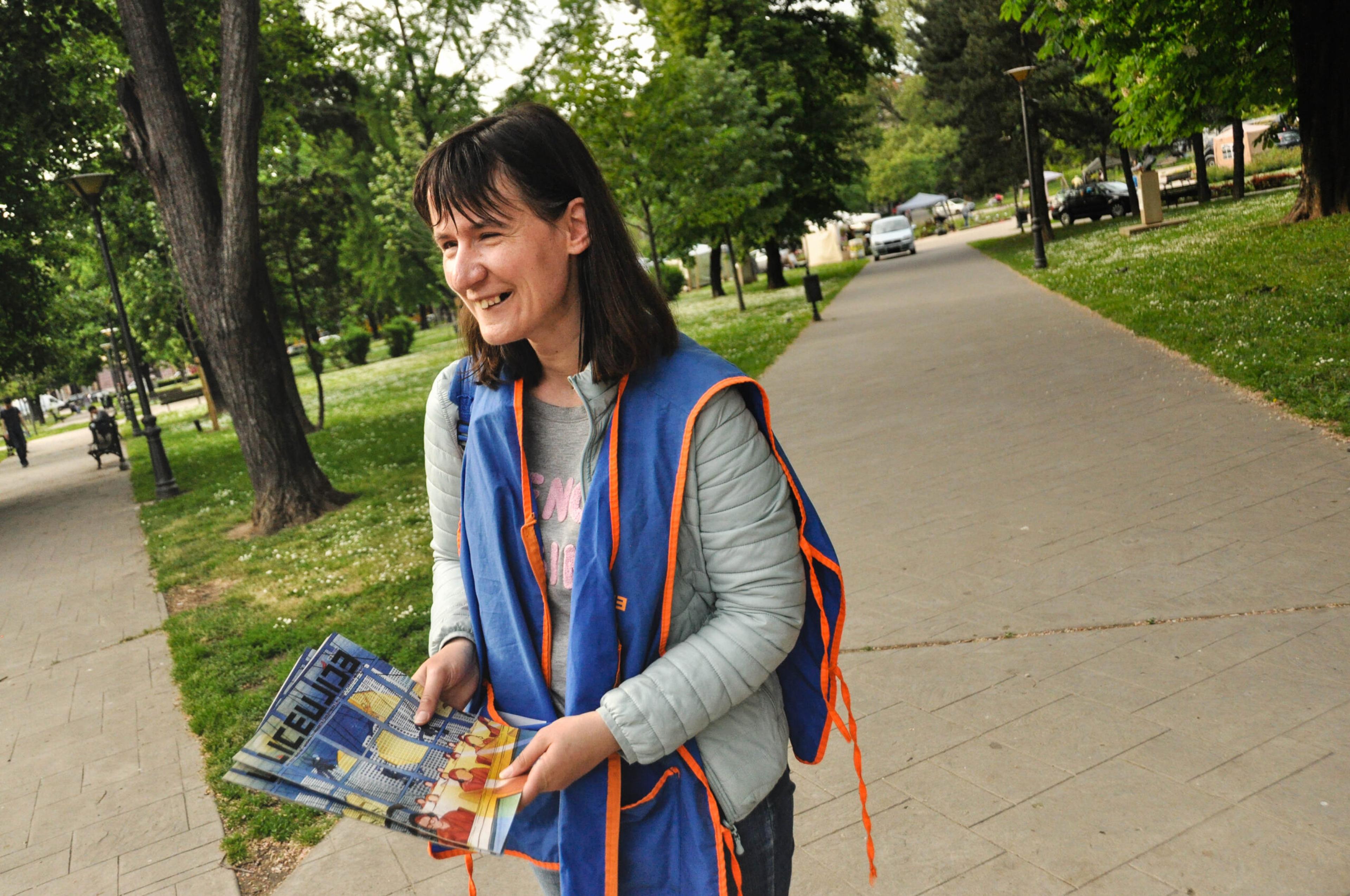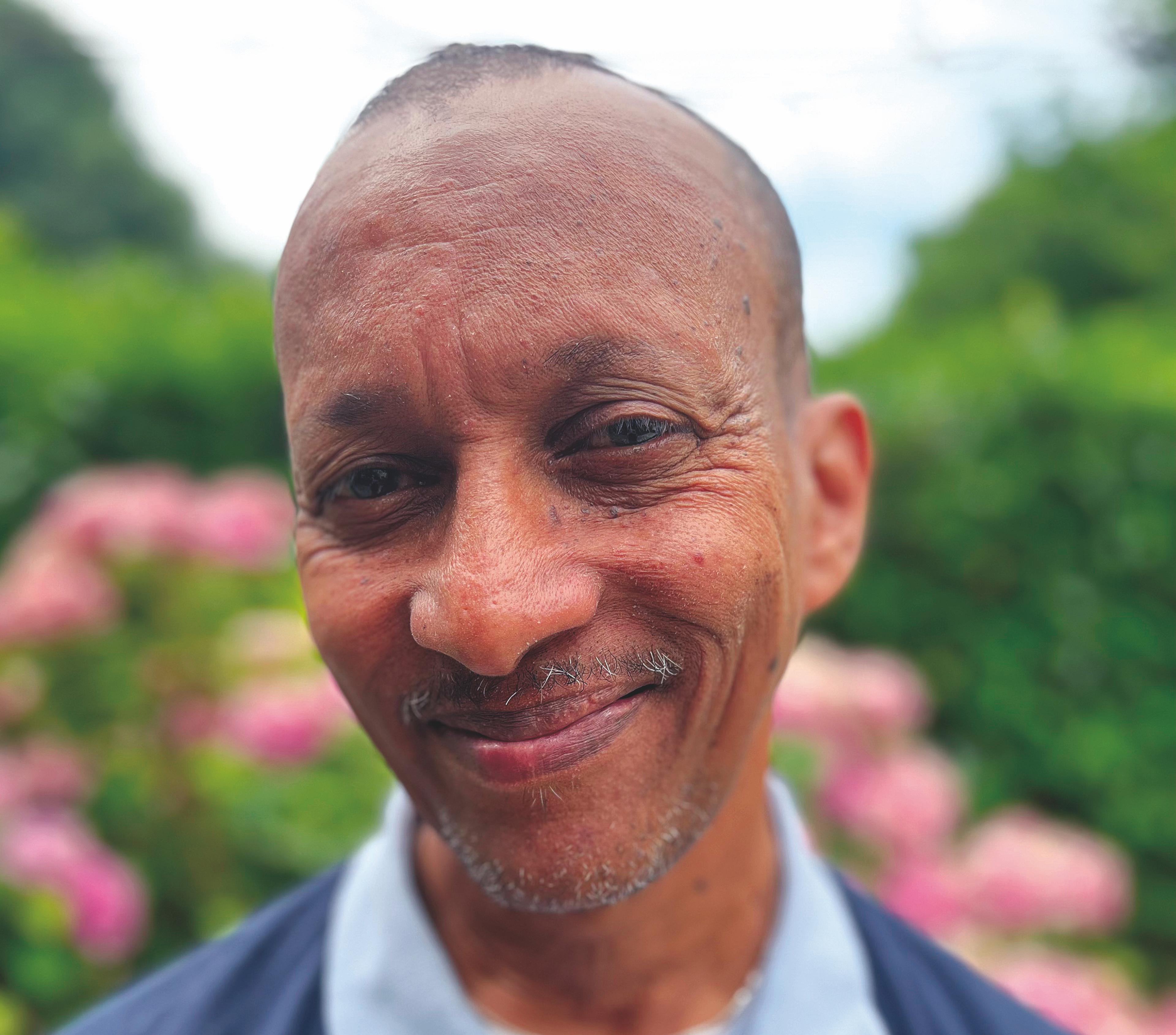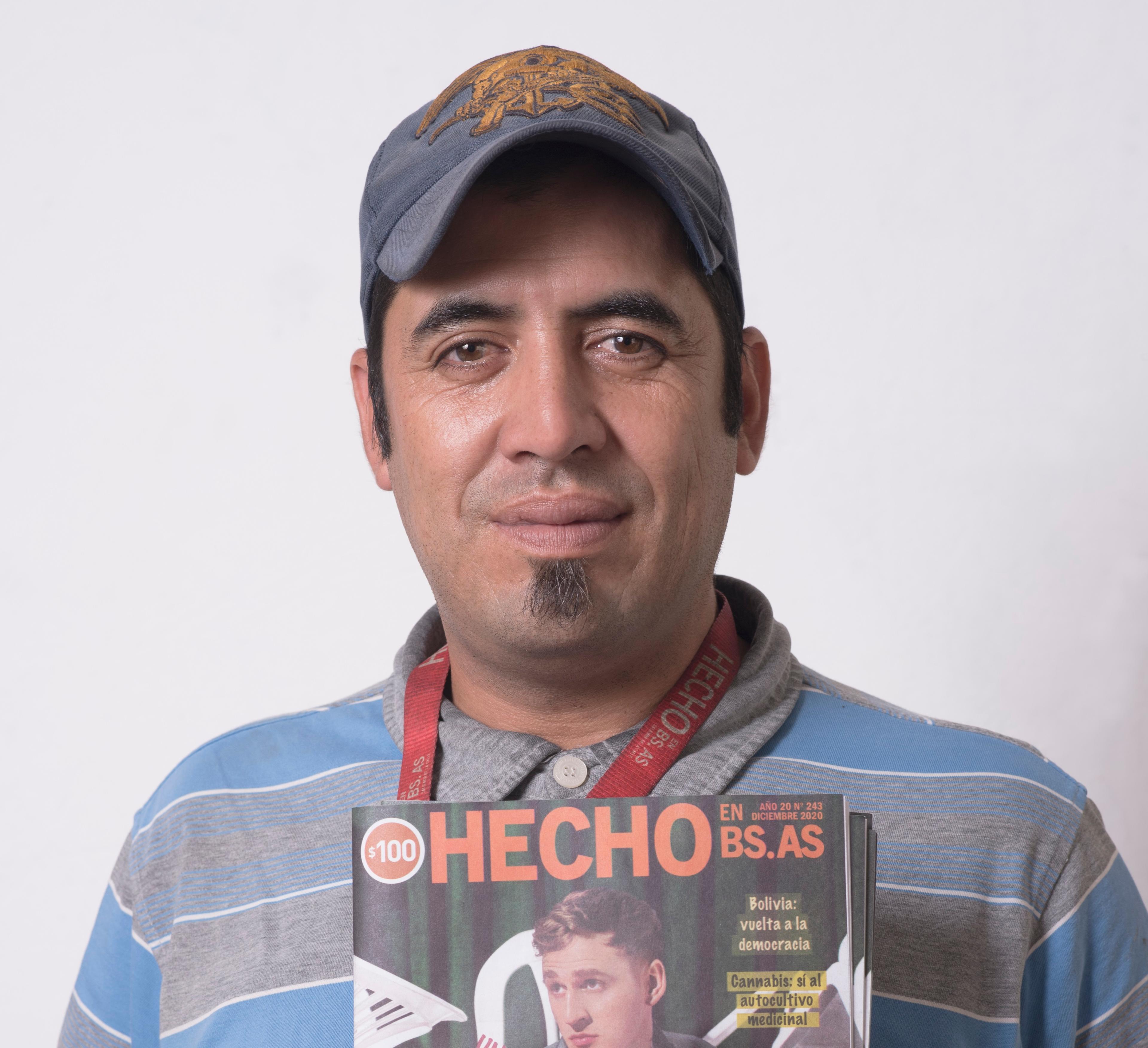Big Issue Korea vendor Jeon Seongwoo: “Life is a carousel”
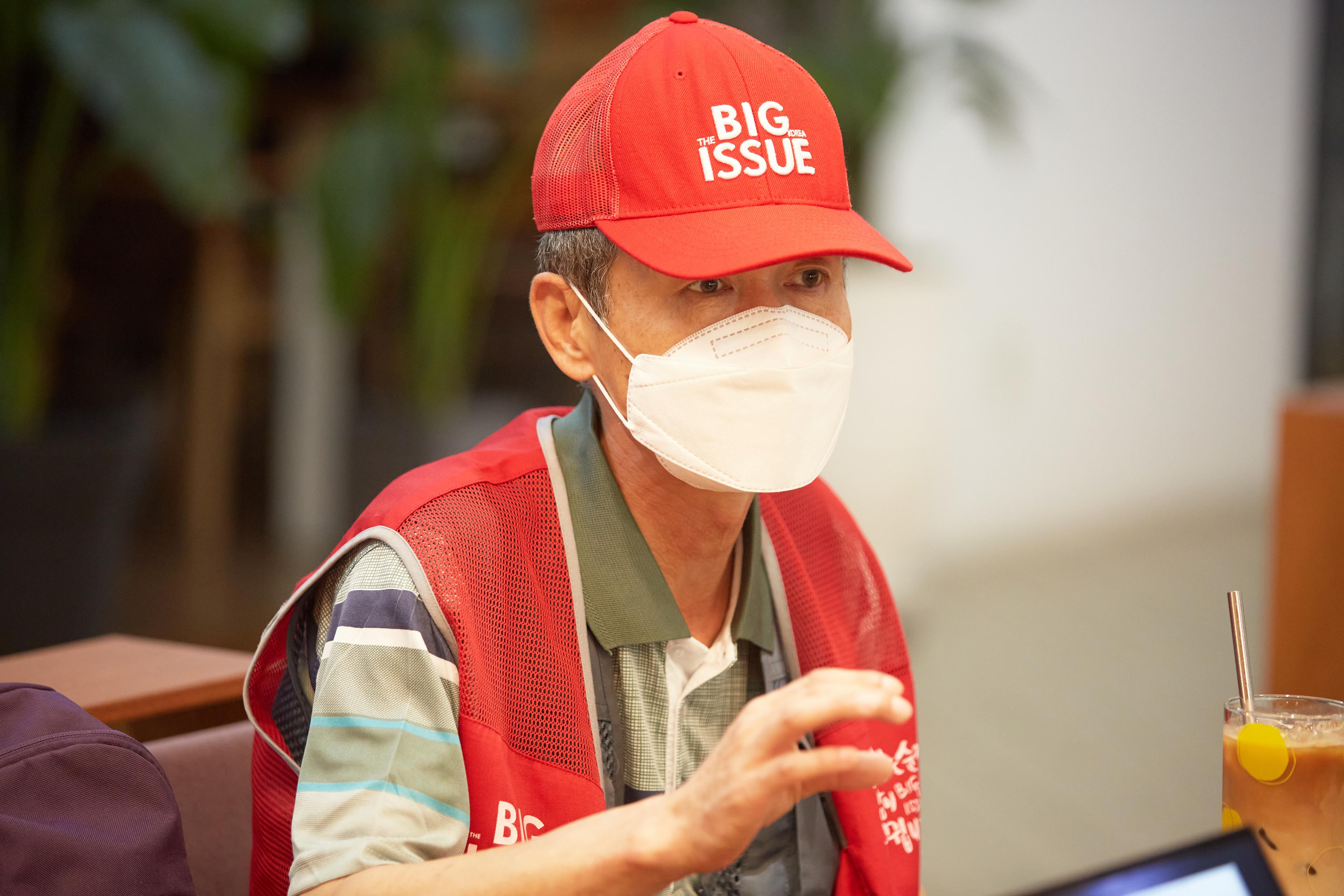
Credit: Lee Sang-hee
Interview by An Deok-hee
Translated from Korean via Translators without Borders
- Vendor stories
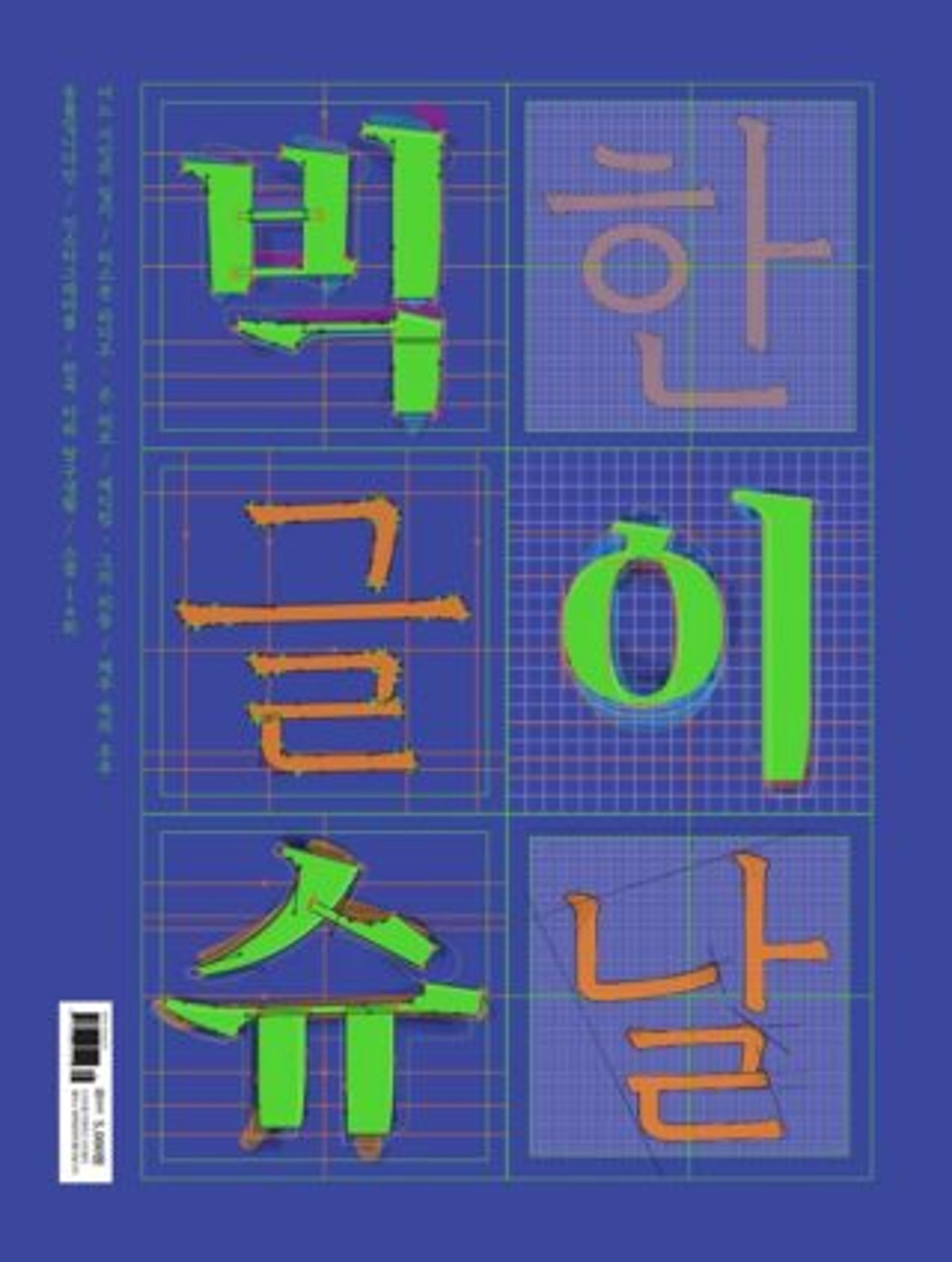
No-one plans to become a failed businessman or an alcoholic. But here he was, both a failed businessman and an alcoholic, a world away from what he had imagined. Although now largely forgotten, the 1997 Asian Financial Crisis cast a long shadow over Korean society, and there are many who are still dealing with its after effects. Big Issue Korea vendor Jeon Seongwoo sells the street paper at exit 1 of Anguk subway station in Seoul. We are often faced with challenges which occur as no fault of our own, and sometimes these challenges are so overwhelming that it’s difficult to come back from them.That’s why it is impossible to suggest that homelessness and poverty are simply a result of individual choices. Jeon Seongwoo has been forced to rethink his understanding of his ‘country’ and ‘homeland’.
The Big Issue Korea: You are currently selling The Big Issue outside Anguk Station on Line 3. Since the President’s House of Korea was opened up to the public, there must have been an increase in people visiting Anguk station. Has it affected your sales?
Jeong Seowoo: The number of passersby definitely increased at first.But they would mostly ask me for directions rather than buy the magazine.So it didn’t really increase my sales.Actually, it became a bit of an issue for me,because lots of people use the station as a meeting point, whether they are going to visit the President’s House or heading to Bugaksan mountain. There is often a large group of people gathered around the entrance, so I have to set up pretty far away from my stand, which makes things a bit difficult. But I still have a lot of customers. Some people stop by while waiting for their friends and end up buying a copy, but mostly it’s my regulars who buy from me.
You were hospitalised for a month, why was that?
I’m an alcoholic, and from 2013 to 2018 I was in and out of rehab centres. Back in 2013 I started throwing up blood and fainted in the middle of the street. I was taken to Seoul Medical Centre and they connected me with an alcoholism treatment centre. In 2013 I had just turned fifty. I was still relatively young, but alcohol had already caused me a lot of issues.
I don’t drink anymore, but I do still sometimes think about alcohol. But if I start drinking again, I know things will go south quickly, so I have to be really careful. In the past I told myself I wouldn’t drink, but I would end up drinking alone in my room. That became a real issue for meand was the reason why I started coughing up blood and fainted in the middle of the street. Now I’ve started doing exercise and things have got a lot better.
Why did you start to sell The Big Issue?
I went to the Samyang Residents Association to apply for social housing, and I ended up attending a meeting there.One of the social workers there told me about The Big Issue. Then they they took me to The Big Issue office, and I ended up becoming a vendor.
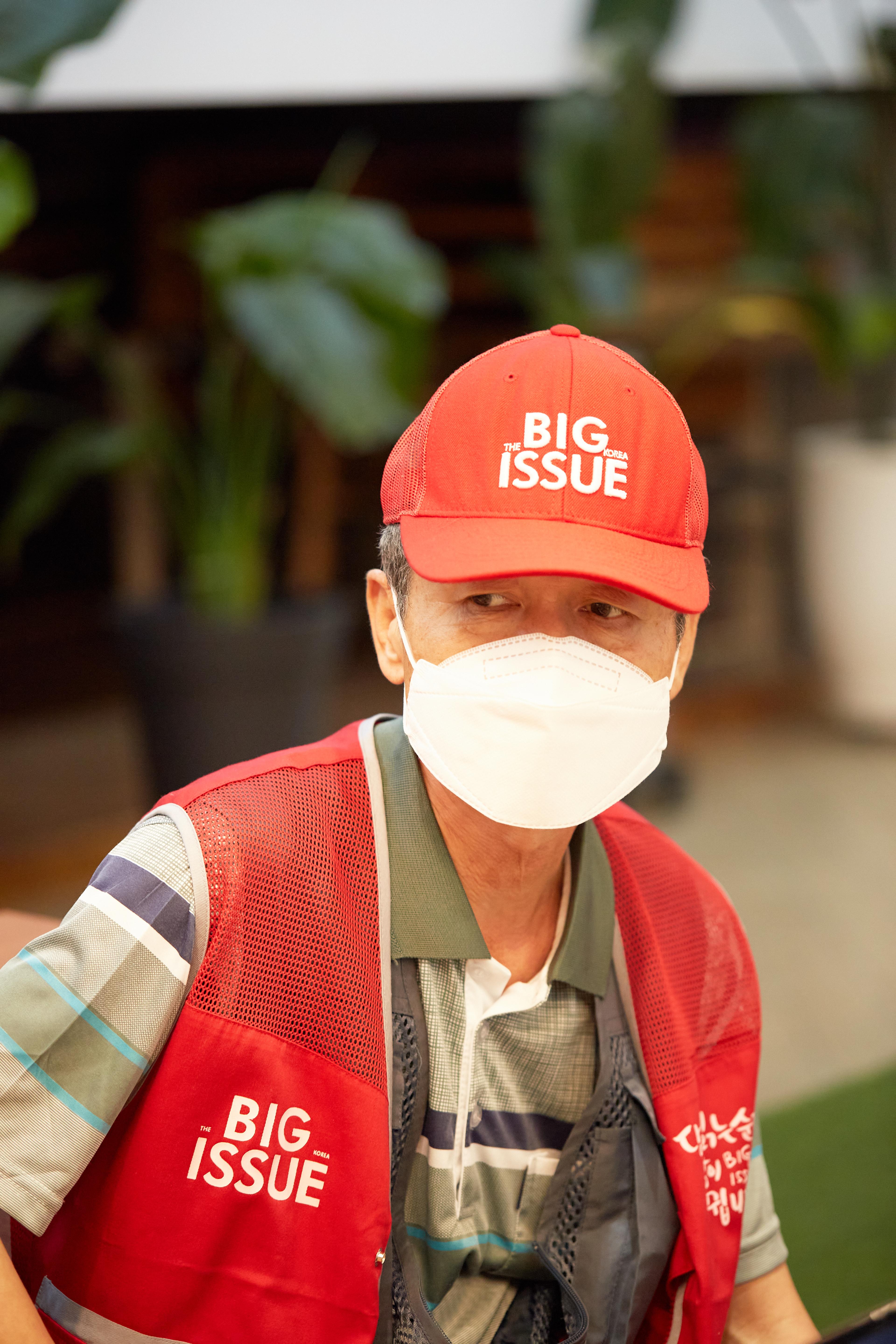
Credit: Lee Sang-hee
Are you now living in social housing?
No. I was given a place there, but I decided to stay living in my goshiwon [small, inexpensive single room housing, originally intended for students studying for exams]. Not all social housing is that great. There are also some advantages to living in a goshiwon. Where I live right now, I even have my own bathroom and shower, so it’s actually much better than some social housing. But that’s not the only reason. Sometimes I feel strong pains in my chest and end up fainting. This happens quite a lot, so I get quite worried at the thought of living alone. In the goshiwon, if something happens, I can knock on the door, and someone will come to get mewhen they hear the noise. (smiles) So I really value living in this kind of communal space.
Tell us a bit about your youth.
Before the financial crisis, life was great. As soon as the crisis hit, things seemed to keep going wrong in my life. I was being paid less and less, and there were more and more challenges cropping up and eventually I turned to alcohol... just because everything was so tough.
I was running a small shoemaking business, kind of like a ‘contractor for a contractor’. When the crisis hit, even though we kept producing goods, no-one had the money to pay for them. For example, a buyer was supposed to give us 1 million Korean won, but they would end up only giving us 300,000 won. I mean at least they were able to give us something. There were stories of people who pocketed the money and fled to China.But it feels like everything stemmed from that one stroke of bad luck, and the situation didn’t improve. Things got so tough I would have to sleep on a cardboard box in the basement of the factory. I was doing my best, but I had nothing left to show for it, and things weren’t working themselves out. When I hit forty-five, I stopped going to work and started to drink all day instead. I even started thinking about ending it all. That was when I moved to the goshiwon, and I’ve been there ever since.
You started selling the magazine again after being hsopitalised.What did you do while you weren’t working?
Apart from the one month I spent at the hospital, I was at home the whole time. But my Big Issue coordinator really helped me out with the whole hospitalization process. He said that they had an internal meeting at The Big Issueand put me down as being on sick leave, rather than leaving my job, since they knew, I would start selling again as soon as I could. I thought it was really kind of them.
What’s the hardest part of selling the magazine?
Going to the toilet. The toilets at Anguk station are quite a distance from my stand, so I don’t even drink water during my shift. If I get thirsty, I just rinse my mouth with water and carry on. I just know that if I leave to go to the toilet, I will definitely miss some customers. (smiles) I wet my mouth instead, so I won’t need to go to the toilet. I also try to eat my meals early. I get up at 5am for breakfast, and then have an early lunchAs soon as I have eaten, I get hungry again, and as soon as I drink something I have to go to the toilet. (smiles)
You must have lots of customers. Are there any customers you remember in particular?
When I was selling over at Yeongdeungpo station I had this regular customerwho was a student. They phoned the Big Issue office to find out where I had moved to and came specially all the way to Anguk to see me. They had even written me a letter. You know, I really felt so grateful. Other people will stay around for a twenty-minute chat with me before leaving. Whenever that happens, it gives me more motivation to work harder.
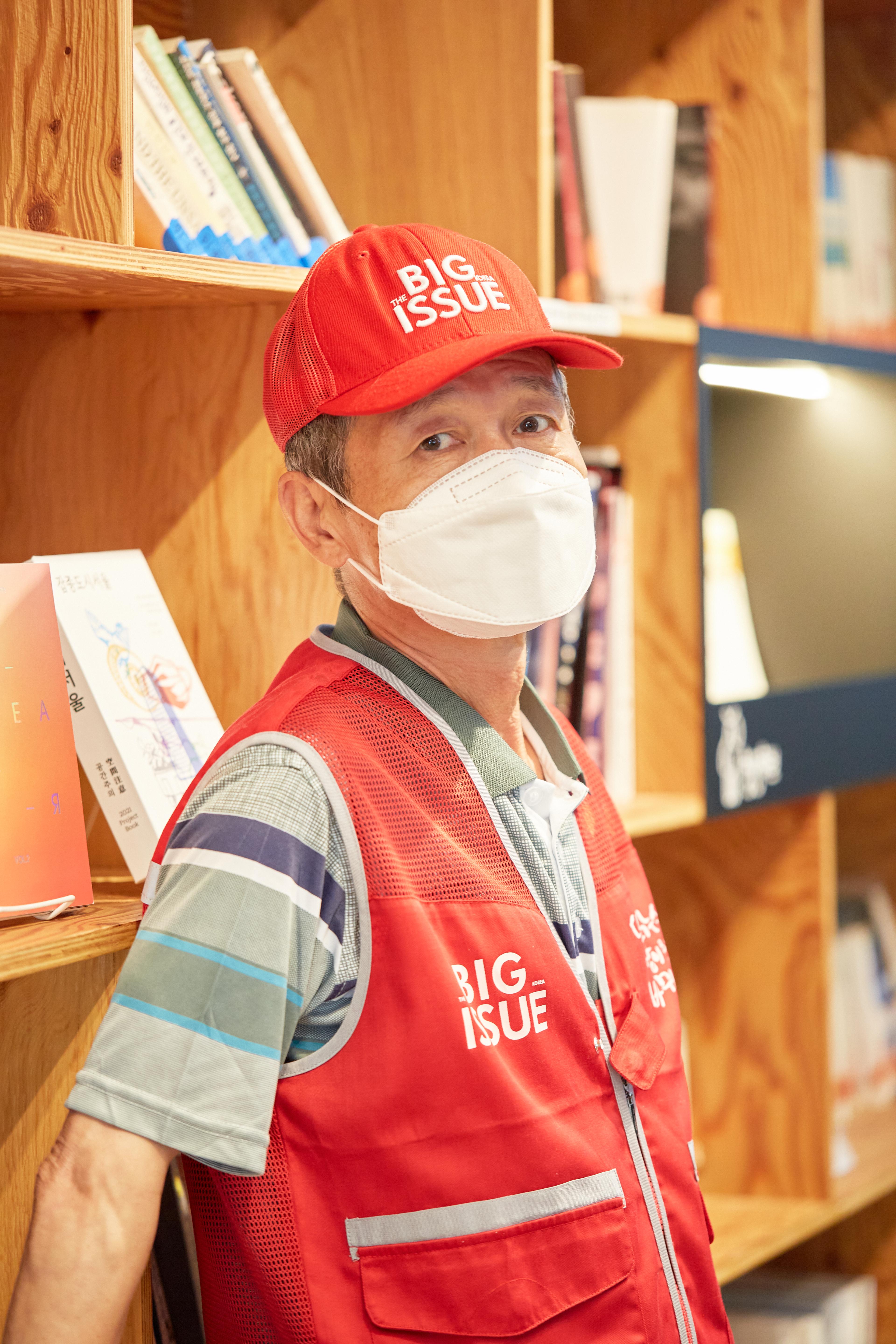
Credit: Lee Sang-hee
It makes me feel like there are still kindhearted people in this world.
I heard that when customers don’t have enough cash, you tell them they can just give it to you the next time? Do most of them really come back to pay?
If someone tells me they don’t have enough cash, I just ask them to pay what they can. They all paid me back though, every single one of them. It’s because we trust each other. And when they come to pay me back, they end up buying another copy. (smiles)
How do you feel when that happens?
You know, it makes me feel amazing. It makes me feel like there are still kindhearted people in this world. Sometimes I forget that they haven’t paid me back and they will explain to methat last time for whatever reason they didn’t give me the full amount. Now we all have card readers though, so customers can pay by card, or some people will even make a bank transfer.
Is selling The Big Issue just a job for you?
When I am selling the magazine, rather than thinking ‘how many copies can I sell today’, I’m much more focused on interactions with my customers. If I just stayed at home, what would I do all day? Getting outside and people-watching or chatting with my customers is a part of the job I really enjoy and
the best thing is that I don’t have time to think too much. Instead, I spent time chatting with people. I tell my customers all about the new issue and what the contents are. And then I’ll tell them about past issues as well. When I explain each different edition and its contents, some customers who originally came for the new magazine even end up buying an old issue as well. I let them know if there is more than one cover page for the same issue, so some people will even buy both versions. (Smiling)I really try my best. I guess those are some techniques I have picked up on the job.
What does selling The Big Issue mean to vendors?
First of all, it really helps that little by little all the effort you put in does start to pay off. And for me, it helps take my mind off alcohol. If I need to be selling the next day, then I go to bed early rather than drinking. If I didn’t have that, I’d start to think ‘oh, just one glass before bed’, and I’d be right back to square one. That’s the best part, I don’t have time to get caught up in my thoughts, especially about alcohol.
